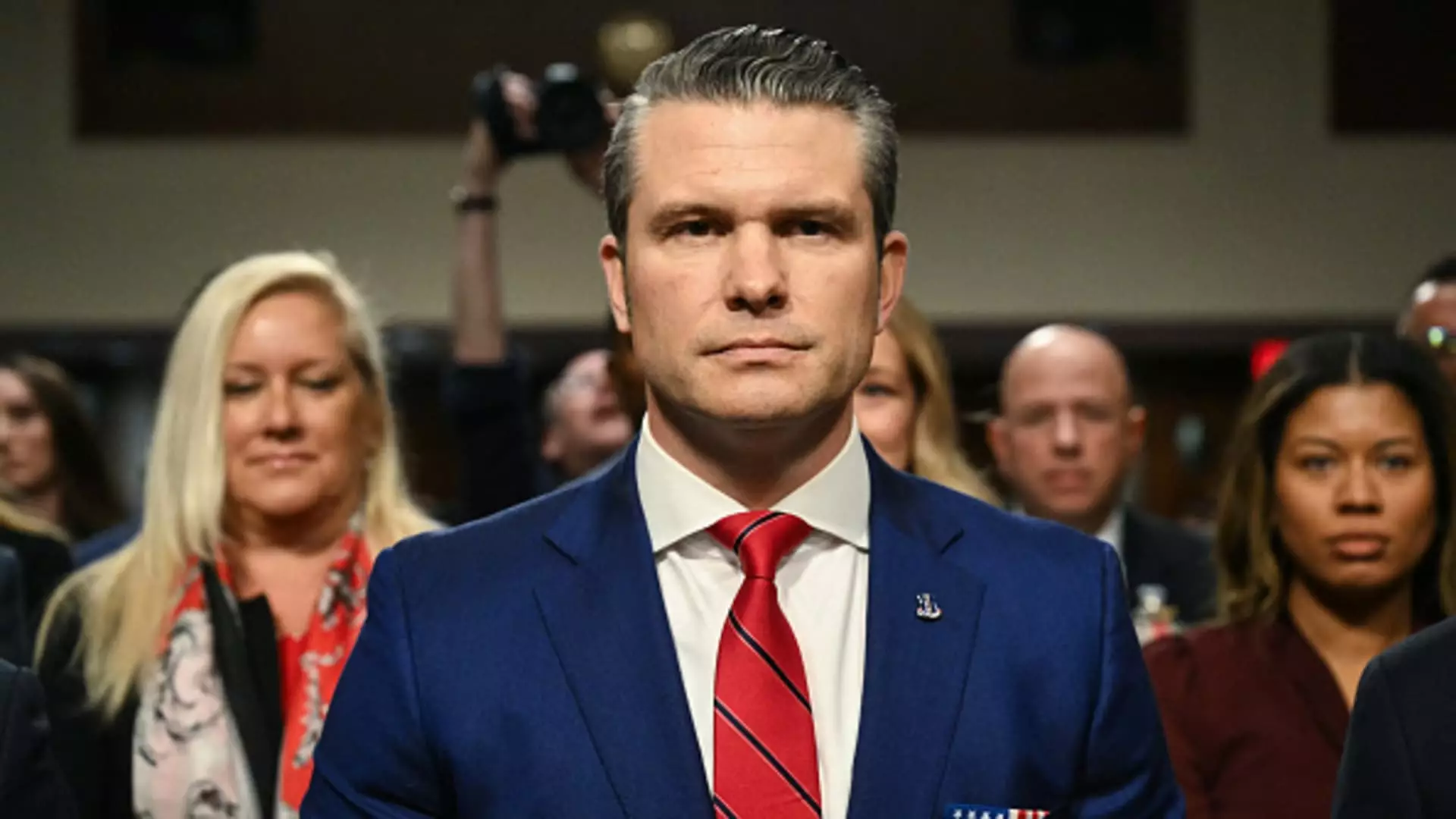The recent push to confirm Pete Hegseth as the United States Secretary of Defense epitomizes the political complexities surrounding national security appointments in the current political climate. With late-night Senate votes on the horizon and a prevailing Republican majority, this nomination highlights not only the ideological split in Congress but also raises critical questions about the qualities necessary for leadership within the Pentagon. As Senate leaders deliberate, the intersection of political loyalty, personal conduct, and the condition of national security has never been more pronounced.
Hegseth, a decorated combat veteran and former Fox News anchor, has promised to embed a so-called “warrior culture” within the Department of Defense. This commitment is positioned against the backdrop of prioritizing traditional militaristic values over modern initiatives focusing on diversity and inclusion. Senate Majority Leader John Thune emphasized that a return to a militaristic focus was essential, indicating a strong pivot away from social engineering frameworks that have gained traction in recent years. This framing raises a pertinent question: is a rigid adherence to traditional military values compatible with the evolving needs of contemporary armed forces?
For some legislators, particularly those on the Republican side, Hegseth’s aggressive stance and experience in combat symbolize a return to form—enhancing the military’s focus on warfare in a time when global tensions escalate. The support Hegseth receives from key Republican figures suggests a party willing to align national defense policies with a specific ideological agenda. However, critics wasted no time during Senate speeches, labeling him as “woefully unqualified” for the role, presenting a significant conflict in evaluating what qualities should be prioritized in a military leader.
The allegations surrounding Hegseth’s conduct, particularly concerning claims of aggressive behavior and heavy drinking, complicate his candidacy significantly. Critics argue that such issues should disqualify anyone vying for a leadership position in an organization defined by strict discipline and accountability. The claims of sexual misconduct, which Hegseth has denied, add a personal dimension to the political calculation facing senators.
Senator Lisa Murkowski and Senator Susan Collins, both prominent Republicans, have publically expressed their reservations about Hegseth, citing concerns that his past behaviors could undermine the position he seeks to hold. The divisiveness this nomination has engendered within the Republican Party underscores an internal struggle: the party grapples with traditional conservatism amidst increasingly potent cultural wars, while striving to maintain unity in the face of dissenting opinions.
What is at stake with the Senate’s decision to confirm Hegseth transcends his individual qualifications; it serves as a barometer of Trump’s influence within the GOP as well. With ongoing tensions within the party, his nomination will act as a gauge for how effectively Trump can navigate contentious political situations and consolidate power among congressional Republicans.
The debate also signals broader implications for how national security decisions may be handled moving forward. If Hegseth is confirmed amidst significant allegations, it could set a precedent regarding accountability for future appointees, potentially diminishing the standards expected of public officials in sensitive roles. This case illustrates very vividly a clash between Trump’s often-contentious political style and a Congress closely scrutinizing moral and ethical conduct.
As the Senate prepares for the vote on Hegseth’s confirmation, each senator’s decision resonates beyond this single nomination. The voting dynamics are delicate; Republicans have a slim majority, allowing only a few dissenters. Despite pushback from various senators who raise ethical concerns, the party leadership appears committed to solidifying Hegseth into a pivotal national security role, a reflection of the party’s current priorities.
The outcome will be closely monitored, particularly given Trump’s recent comments regarding Republican senators who oppose Hegseth, including surprise allegations of disloyalty. Such frictions illustrate an intricate relationship between grassroots party alignment and individual moral compasses among legislators.
The unfolding confirmation process of Pete Hegseth illuminates significant fault lines within both the Republican Party and the broader American political landscape. Voters and analysts alike are closely observing how allegations of misconduct, ideological beliefs, and political loyalty entwine to shape American defense policy in this critical era.


Leave a Reply